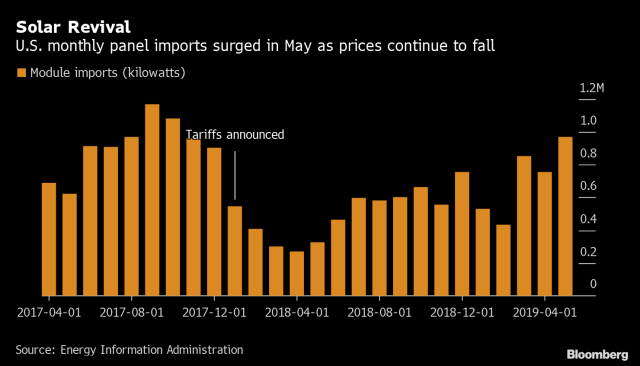New York Magazine
The Intelligencer
Impeachment Season
The (Full) Case for Impeachment
The crimes for which impeachment is the prescribed punishment are notoriously undefined. And that’s for a reason: Presidential powers are vast, and it’s impossible to design laws to cover every possible abuse of the office’s authority. House Democrats have calculated that an impeachment focused narrowly on the Ukraine scandal will make the strongest legal case against President Trump. But that’s not Trump’s only impeachable offense. A full accounting would include a wide array of dangerous and authoritarian acts — 82, to be precise. His violations fall into seven broad categories of potentially impeachable misconduct that should be weighed, if not by the House, then at least by history.
I. Abusing Power for Political Gain
Explanation: The single most dangerous threat to any democratic system is that the ruling party will use its governing powers to entrench itself illegitimately.
Evidence: (1) The Ukraine scandal is fundamentally about the president abusing his authority by wielding his power over foreign policy as a cudgel against his domestic opponents. The president is both implicitly and explicitly trading the U.S. government’s favor for investigations intended to create adverse publicity for Americans whom Trump wishes to discredit. (2) During his campaign, he threatened to impose policies harmful to Amazon in retribution for critical coverage in the Washington Post. (“If I become president, oh do they have problems.”) He has since pushed the postmaster general to double rates on Amazon, and the Defense Department held up a $10 billion contract with Amazon, almost certainly at his behest. (3) He has ordered his officials to block the AT&T – Time Warner merger as punishment for CNN’s coverage of him. (4) He encouraged the NFL to blacklist Colin Kaepernick.
II. Mishandling Classified Information
Explanation: As he does with many other laws, the president enjoys broad immunity from regulations on the proper handling of classified information, allowing him to take action that would result in felony convictions for other federal employees. President Trump’s mishandling of classified information is not merely careless but a danger to national security.
Evidence: (5) Trump has habitually communicated on a smartphone highly vulnerable to foreign espionage. (6–30) He has reversed 25 security-clearance denials (including for his son-in-law, who has conducted potentially compromising business with foreign interests). (31) He has turned Mar-a-Lago into an unsecured second White House and even once handled news of North Korea’s missile launch in public view. (32) He gave Russian officials sensitive Israeli intelligence that blew “the most valuable source of information on external plotting by [the] Islamic State,” the Wall Street Journal reported. (33) He tweeted a high-resolution satellite image of an Iranian launch site for the sake of boasting.
III. Undermining Duly Enacted Federal Law
Explanation: President Trump has abused his authority either by distorting the intent of laws passed by Congress or by flouting them. He has directly ordered subordinates to violate the law and has promised pardons in advance, enabling him and his staff to operate with impunity. In these actions, he has undermined Congress’s constitutional authority to make laws.
Evidence: (34) Having failed to secure funding authority for a border wall, President Trump unilaterally ordered funds to be moved from other budget accounts. (35) He has undermined regulations on health insurance under the Affordable Care Act preventing insurers from charging higher rates to customers with more expensive risk profiles. (36) He has abused emergency powers to impose tariffs, intended to protect the supply chain in case of war, to seize from Congress its authority to negotiate international trade agreements. (37–38) He has ordered border agents to illegally block asylum seekers from entering the country and has ordered other aides to violate eminent-domain laws and contracting procedures in building the border wall, (39–40) both times promising immunity from lawbreaking through presidential pardons.
IV. Obstruction of Congress
Explanation: The executive branch and Congress are co-equal, each intended to guard against usurpation of authority by the other. Trump has refused to acknowledge any legitimate oversight function of Congress, insisting that because Congress has political motivations, it is disqualified from it. His actions and rationale strike at the Constitution’s design of using the political ambitions of the elected branches to check one another.
Evidence: (41) Trump has refused to abide by a congressional demand to release his tax returns, despite an unambiguous law granting the House this authority. His lawyers have flouted the law on the spurious grounds that subpoenas for his tax returns “were issued to harass President Donald J. Trump, to rummage through every aspect of his personal finances, his businesses and the private information of the president and his family, and to ferret about for any material that might be used to cause him political damage.” Trump’s lawyers have argued that Congress cannot investigate potentially illegal behavior by the president because the authority to do so belongs to prosecutors. In other litigation, those lawyers have argued that prosecutors cannot investigate the president. These contradictory positions support an underlying stance that no authority can investigate his misconduct. (42) He has defended his refusal to accept oversight on the grounds that members of Congress “aren’t, like, impartial people. The Democrats are trying to win 2020.” (43) The president has also declared that impeachment is illegal and should be stopped in the courts (though, unlike with his other obstructive acts, he has not yet taken any legal action toward this end).
V. Obstruction of Justice
Explanation: By virtue of his control over the federal government’s investigative apparatus, the president (along with the attorney general) is uniquely well positioned to cover up his own misconduct. Impeachment is the sole available remedy for a president who uses his powers of office to hold himself immune from legal accountability. In particular, the pardon power gives the president almost unlimited authority to obstruct investigations by providing him with a means to induce the silence of co-conspirators.
Evidence: (44–53) The Mueller Report contains ten instances of President Trump engaging in obstructive acts. While none of those succeeded in stopping the probe, Trump dangled pardons and induced his co-conspirators to lie or withhold evidence from investigators. Former Trump lawyer Michael Cohen testified to Congress that Trump had directed him to lie to it about his negotiations with the Russian government during the campaign to secure a lucrative building contract in Moscow. And when Cohen stated his willingness to lie, Robert Costello, an attorney who had worked with Rudy Giuliani, emailed Cohen assuring him he could “sleep well tonight” because he had “friends in high places.” Trump has publicly praised witnesses in the Russia investigation for refusing to cooperate, and he sent a private message to former national-security adviser Michael Flynn urging him to “stay strong.” He has reinforced this signal by repeatedly denouncing witnesses who cooperate with investigators as “flippers.” (54–61) He has exercised his pardon power for a series of Republican loyalists, sending a message that at least some of his co-conspirators have received. The president’s pardon of conservative pundit Dinesh D’Souza “has to be a signal to Mike Flynn and Paul Manafort and even Robert S. Mueller III: Indict people for crimes that don’t pertain to Russian collusion and this is what could happen,” Roger Stone told the Washington Post. “The special counsel has awesome powers, as you know, but the president has even more awesome powers.”
VI. Profiting From Office
Explanation: Federal employees must follow strict rules to prevent them from being influenced by any financial conflict. Conflict-of-interest rules are less clear for a sitting president because all presidential misconduct will be resolved by either reelection or impeachment. If Trump held any position in the federal government below the presidency, he would have been fired for his obvious conflicts. His violations are so gross and blatant they merit impeachment.
Evidence: (62) He has maintained a private business while holding office, (63) made decisions that influence that business, (64) and accepted payments from parties both domestic and foreign who have an interest in his policies. (65) He has openly signaled that these parties can gain his favor by doing so. (66) He has refused even to disclose his interests, which would at least make public which parties are paying him.
VII. Fomenting Violence
Explanation: One of the unspoken roles of the president is to serve as a symbolic head of state. Presidents have very wide latitude for their political rhetoric, but Trump has violated its bounds, exceeding in his viciousness the rhetoric of Andrew Johnson (who was impeached in part for the same offense).
Evidence: (67) Trump called for locking up his 2016 opponent after the election. (68–71) He has clamored for the deportation of four women of color who are congressional representatives of the opposite party. (72) He has described a wide array of domestic political opponents as treasonous, including the news media. (73–80) On at least eight occasions, he has encouraged his supporters — including members of the armed forces — to attack his political opponents. (“I have the support of the police, the support of the military, the support of the Bikers for Trump — I have the tough people, but they don’t play it tough until they go to a certain point, and then it would be very bad, very bad.”) (81) He has threatened journalists with violence if they fail to produce positive coverage. (“If the media would write correctly and write accurately and write fairly, you’d have a lot less violence in the country.”) (82) There have been 36 criminal cases nationwide in which the defendant invoked Trump’s name in connection with violence; 29 of these cited him as the inspiration for an attack.






